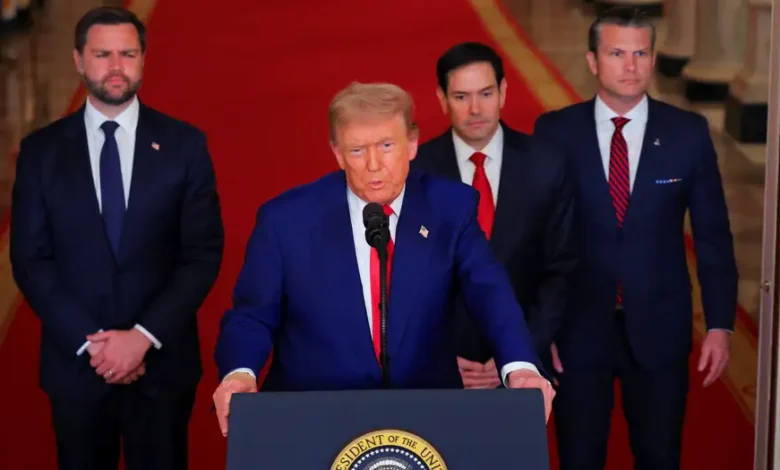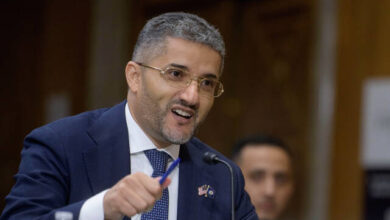U.S. bombs Iran’s nuclear sites; infrastructure ‘completely and totally obliterated’
The operation ‘a spectacular military success; Iran’s nuclear infrastructure had been completely and totally obliterated; if Iran does not agree to a diplomatic resolution, future attacks will be far greater and a lot easier’ – US President Donald Trump

In a dramatic escalation, the United States launched precision airstrikes against three key nuclear facilities in Iran — Fordow, Natanz, and Isfahan — marking a significant shift in President Donald Trump’s foreign policy stance and raising the risk of broader regional conflict.
President Trump addressed the nation late Saturday, calling the operation “a spectacular military success,” stating that Iran’s nuclear infrastructure had been “completely and totally obliterated.” He warned that if Iran does not agree to a diplomatic resolution, “future attacks will be far greater and a lot easier.”
In a Truth Social post, he reiterated, “Iran must now agree to end this war,” emphasizing that additional targets remain on the table.
Despite the magnitude of the strikes, Iran’s National Nuclear Safety System Center confirmed that no radioactive contamination had been detected at or around the targeted facilities. Saudi Arabia’s Nuclear and Radiological Regulatory Commission echoed the same conclusion, noting no environmental impact in the Gulf region, according to international news agencies.
Meanwhile, the Israeli Prime Minister Benjamin Netanyahu praised the U.S. operation, calling it a historic move. “The United States has done what no other country on earth could do,” he said.
In response to fears of Iranian retaliation, Israel’s military has imposed tight restrictions nationwide, shutting down schools and prohibiting public gatherings as of early Sunday morning.
UN Secretary-General António Guterres voiced deep concern, warning of “a dangerous escalation in a region already on the edge” and calling for immediate de-escalation and diplomacy. “There is no military solution. The only path forward is peace,” Guterres urged.
Back in Washington, the political reaction was deeply polarized. House Speaker Mike Johnson supported the strikes, saying they “prevent the world’s largest state sponsor of terrorism from acquiring the most lethal weapon on the planet.”
However, Democratic Leader Hakeem Jeffries and other lawmakers sharply criticized Trump for bypassing congressional approval and risking entanglement in a major Middle Eastern war.
Iran’s Atomic Energy Organization acknowledged the attacks but asserted that they would not deter the country’s nuclear ambitions. Labeling the strikes a violation of international law, the agency refused to reveal the extent of the damage and emphasized that nuclear activities would continue.
Analysts like Robert Satloff of the Washington Institute raised urgent questions: How effective were the strikes? What becomes of Iran’s fissile material? Will Iran retaliate, and if so, how? And will this trigger internal unrest in Iran or force a recalibration of Israeli operations in Gaza?
Fox News host Sean Hannity reported that President Trump disclosed the use of five to six U.S. bunker-buster bombs to neutralize the deeply-buried Fordow site, which Israel had previously refrained from targeting. According to multiple U.S. media reports, top congressional GOP leaders were briefed in advance, and at present, no further U.S. strikes are planned.
The U.S. operation aligns the Trump administration with Israel in confronting Iran’s nuclear program, potentially transforming the landscape of Middle East security.
While Trump campaigned on avoiding foreign wars, his recent actions suggest a stark departure, prompting both praise and backlash across domestic and international spheres.
The world now watches Tehran’s next move — and whether the crisis can be steered from the brink toward diplomacy.




























